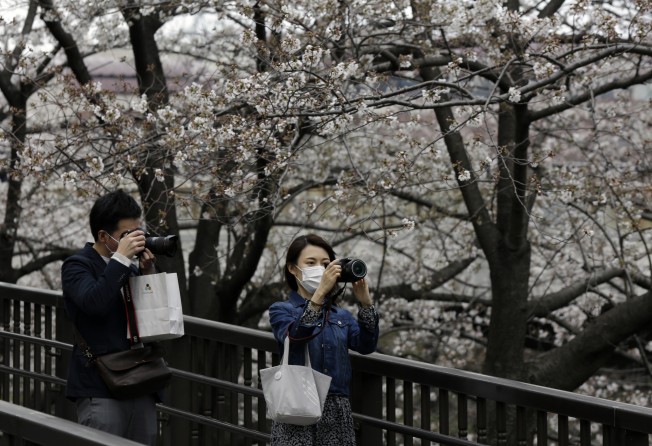Coronavirus: German embassy criticises Japan’s case figures as expats question Tokyo’s approach
- Japan’s official numbers on those infected by the novel coronavirus ‘cannot be believed’, according to the embassy
- The foreign ministry declined to comment on the matter, but foreigners in the country are worried about potential government misinformation

The German embassy in Tokyo has issued a sharply worded criticism of the Japanese government over the spread of the coronavirus within the country, effectively accusing Japan of fudging official figures.
“The official infection rate in Japan cannot be believed. Due to the low rate of testing, it is likely that there is a high number of cases that have not been reported,” the embassy warned in a statement published on its website this week addressed to German nationals in Japan.
“Testing is still only available for people who are very sick (those who have had a high fever for at least four days) as well as other factors (such as contact with other infected people or those returning from high-risk areas).”
A spokesman for Japan’s Foreign Ministry declined to comment on the message, although Stephen Nagy, a professor of international relations at the International Christian University in Tokyo, said it was outside the usual terms of diplomatic protocol.
“This is an unusual move from Germany, which has well-established and good relations with the Japanese government,” Nagy said. “It would appear to be a way to push for more transparency from the Japanese side, as Germany has an aversion to anything that seems to be authoritarian or undemocratic.”
The Japanese public and media are largely not discussing the scale of the coronavirus problem, even though the authorities have recently admitted a sharp increase in new cases.
That reporting of cases suddenly changed on Thursday, when health officials confirmed a record 47 new cases in Tokyo, with the national figure now standing at 1,291, and a government panel warned that in reality, infections across the nations are likely to be “rampant”.
There have been major outbreaks in Europe, with more than 80,000 cases in Italy, almost 65,000 in Spain and close to 30,000 in France.
Japan’s spike in infections was sufficient for Tokyo Governor Yuriko Koike to call on the population to remain at home this weekend.
“I don’t believe a word of what they have told us,” said Eric Fior, the French owner of a language school in Tokyo. “The government has been telling the world that Japanese are ‘special’ and that they won’t get the disease because they wash their hands a lot and wear masks, but all of a sudden the Olympics are delayed and the number goes up.
“The government here has been saying how much better Japan has handled the outbreak in comparison with China and South Korea, but I think that’s just a pride thing. For me, their most important consideration was that the Olympics [go] ahead as scheduled or, when it was clear that could not happen, that they be postponed instead of cancelled.”
Fior, 48, said he is not particularly afraid of contracting the illness, but added that the outbreak is far worse than it might have been if the government had been “honest” at the outset.
“Their other priority was money; they had to keep people going to work, they had to have shops and businesses operating and money still changing hands,” he said. “It’s what this entire country is built on and it’s more important than the health of the people.”
Online news sites popular with foreign residents have also been busy publishing users’ comments on the crisis.
“Unfortunately, I fear we ain’t seen nothing yet,” a reader of the Japan Today website wrote. “Forty people a day for a couple of days, in a metropolitan area of over 13 million people, is still a drop in the bucket of what is potentially still to come.”
“A grand total of 21,000 tested until now, over two months,” another stated. “About the same as other countries can manage in two days. Olympic money was more important than public health.”
John Harris, a consultant who lives in Chiba, east of central Tokyo, said Japan “has been living in a state of suspended reality” since the first case was reported.
“The government has so much invested in the Olympics going ahead that everything else has had to fall in line with their narrative,” said Harris, a 62-year-old Canadian. “It’s almost embarrassing that within 48 hours of the Olympics being cancelled, the Tokyo governor is telling people to stay home – although it must also be pointed out that they only have to stay home on the weekend, not during the working week.”